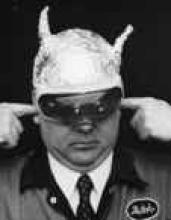The GOP Divide Evident in Iowa
The GOP Divide Evident in Iowa
This time around, however, the political landscape is very different. Fiscal concerns like unemployment and the national debt seem to be trumping the old evangelical stumping on pro-life policies and banning gay marriage (Iowa has had an interesting past with that last one). In a editorial to the New Hampshire Union Leader, Fergus Cullen, former chair of the New Hampshire Republican Party, wrote of the marginalization of Iowa Republicans by their evangelical and social conservative majority. In a shameless bid for promoting the New Hampshire primaries over the Iowa caucuses, Cullen nonetheless points out some important rifts in the Republican party.
More fiscally minded conservatives running for the GOP nomination are likely to bypass Iowa because of their emphasis on economics over social conservatives' issues. Mitt Romney will surely be one of those, where his Mormon faith was seen to be a non-starter for many of the Iowan evangelicals. Jon Huntsman is also likely to bypass, preferring to invest more heavily in the Libertarian and fiscal conservatism of the New Hampshire primaries. Cullen states in his article that 48% of Republicans in Iowa don't believe that President Obama was born in the U.S. and another 26% aren't sure. "It's hard to talk about real issues when three quarters of the audience wears tinfoil hats," writes Cullen (a comment that put a bee in many Iowan conservatives' bonnets, including Governor Terry Branstead).
He certainly has a point, and with the slow start to the GOP campaign-season, the Iowa caucuses seem to be of less concern than the economy, where Obama is still considered weak. However, the caucuses will provide votes and there will be a few candidates that will throw in their lot. Newt Gingrich is the only potential nominee that seems to be paying Iowa any attention right now, having met with several evangelical groups. Gingrich's move seems to make more sense, given his checkered past. For Gingrich to win over the evangelical voters in Iowa is to find some redemption in a place he is weak; namely, his personal life.
What this reveals nationally, is the rift in momentum within the Republican Party. With the 2010 infusion of Tea Party conservatism, which is primarily fiscal conservatism (with some peripheral platforms more lunatic than politick), the Republican Party has been pulled in two directions, between moderate and extreme, and between fiscal and social conservatism. Huckabee pandered to the Tea Party extremists in the beginning of his campaign, calling attention to the Birther Debate 2.0, and quietly slunk away from the race earlier this month. Similarly, Trump began his campaign with a bang (the sound of my hand hitting my forehead) by declaring an investigation into Obama's origins. Though he recent;y removed himself from the race, he did so with classic Trump grace and dignity ("I would have won! I would have!). It's becoming clear that the public is not responding to the far right-field ideation, but it remains to be seen whether social conservatives are going to get any attention either. In a crowded Republican field, it may force several potential nominees to adopt a more socially conservative platform simply to differentiate themselves. However, doing that may also take them out of the race altogether.
Photo from www.desmoinesregister.com



